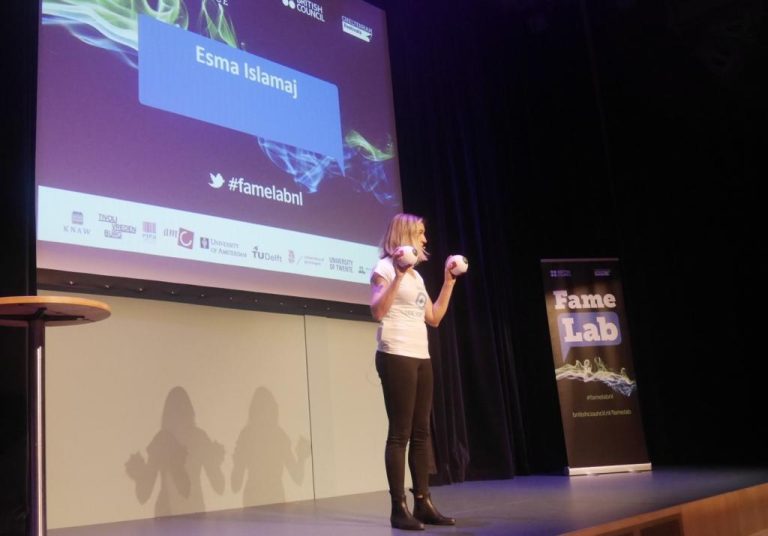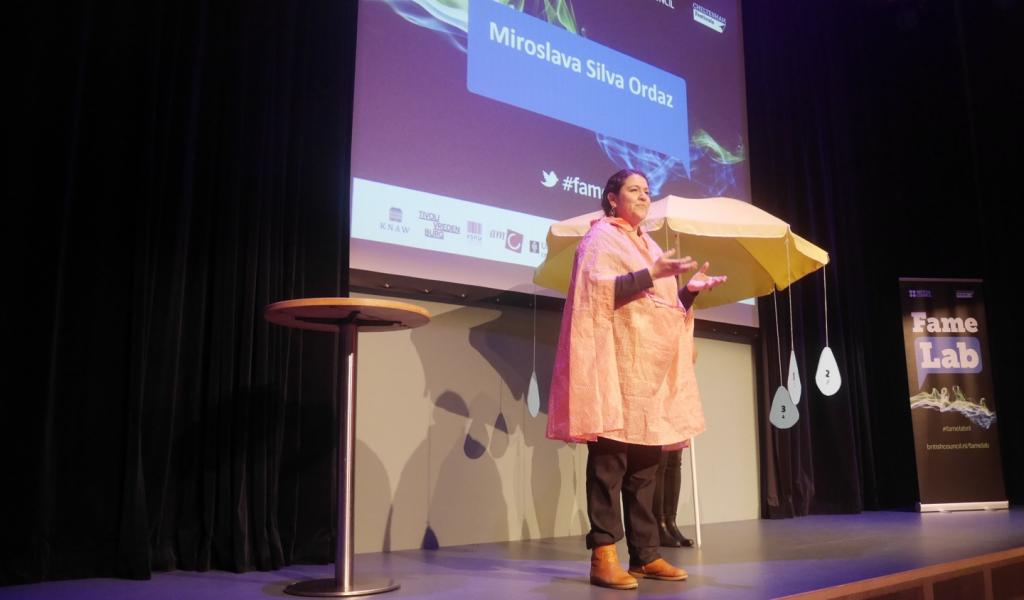Scientists usually present their research in elaborate theses or articles, but not everyone has the time or energy to read them. So, what if scientists presented their research in a 3-minute pitch? Tuesday evening, 13 young researchers did exactly that in the FameLab competition.
Guest researcher at the TU Delft Miroslava Silva Ordaz presented a method to let children help in the design process in an original way. (Photo: Nora de Vries)
FameLab is a worldwide competition in which young scientists present their research or ideas in only three minutes. As FameLab states on its site, “Communicating science accessibly and attractively is an ever-growing priority for researchers worldwide. FameLab helps young scientists acquire valuable skills to communicate their work to non-scientific audiences.” Tuesday evening the preliminary rounds for Delft were held. The two winners of this evening will continue to the Dutch final, and the winner of that round gets the opportunity to participate in the worldwide final in the United Kingdom. The jury of the evening consisted of Julia Cramer (quantum scientist at the faculty of applied sciences and postdoc science communication & society), Jan Bartel (director of Theater de Veste) and Ryan Bogaars (2015 Famelab finalist). The participants were judged on several aspects of their pitch, such as clarity, content, body language and stimulating ideas.
Origami and mathematical bees
The two winners of Tuesday evening were Sebastien Callens (PhD candidate at the TU Delft in biomechanical engineering) and Esma Islamaj (PhD at the Rotterdam eye hospital). Callens did a pitch about being inspired by the Japanese art of origami to design foldable bone implants for complicated structures that enable them to function properly. Islamaj works at the Rotterdam eye hospital, and for her pitch she brought two large eyes with her to demonstrate what happens when people start seeing double. She illustrated her explanation with the story of a patient she met in the hospital who came in when he started seeing not one bossy wife, but two. There was also a public prize in which the audience could vote for their favourite speaker. This prize was won by Ana Mafalda Monteiro, who spoke passionately about the mathematical skills of bees, who mastered the honeycomb conjecture math problem thousands of years before humans cracked it. Other topics included the Third Wave of Robotics, the unpredictability of great ideas and how art can help scientists understand how we see reality.


Esma Islamaj giving her winning pitch about eyes (Photo: Nora de Vries)



Comments are closed.